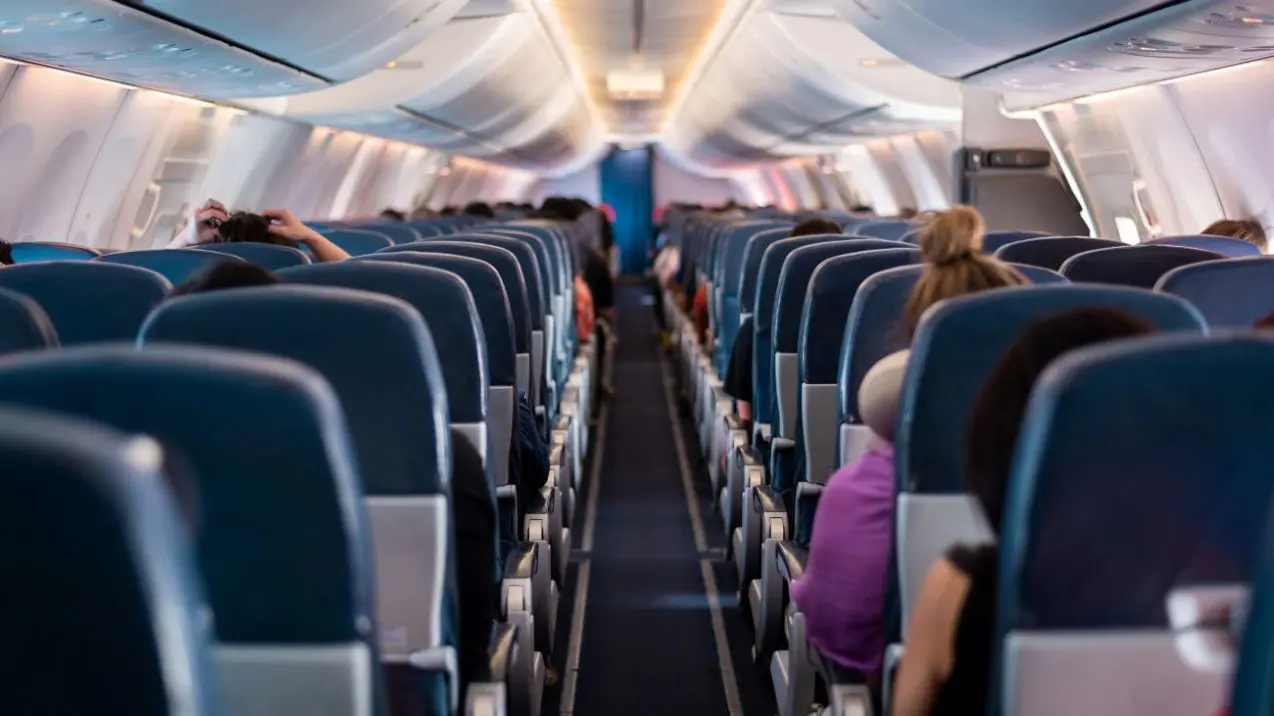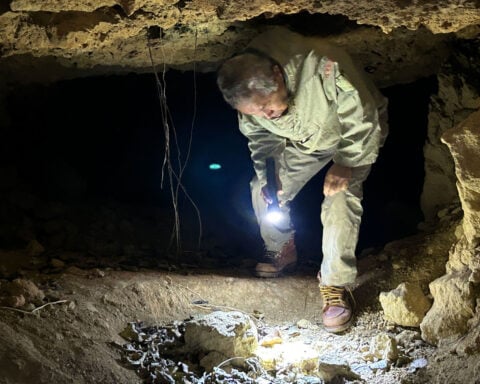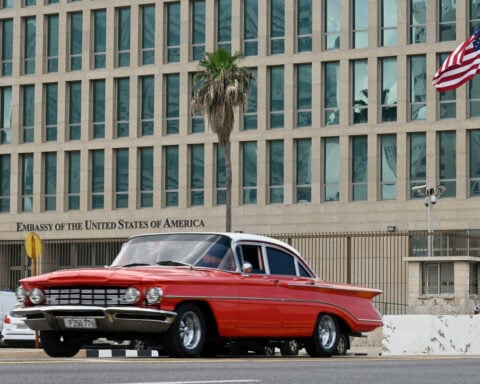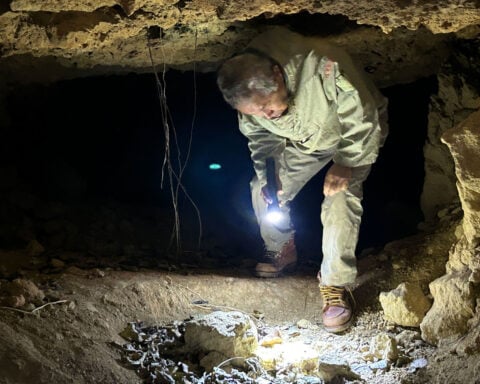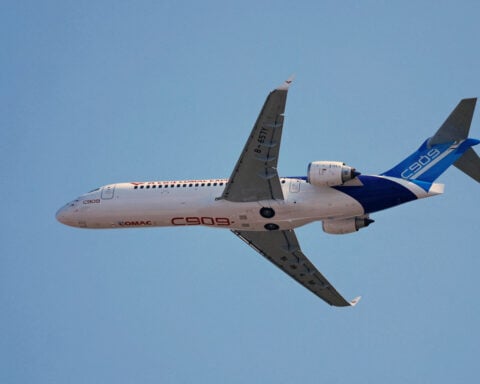A 22-year-old’s extreme mid-flight meltdown recently gained international attention thanks to viral videos showing the consequences of his unruly behavior – namely, getting duct-taped to a seat by frustrated flight attendants. Maxwell Berry now faces assault charges after apparent intoxication sparked harassing and violent acts towards crew and passengers. The severe incident spotlights ongoing issues of passenger misconduct in the air, especially abuse targeting airline staff enforcing safety rules. It further raises questions on appropriate restraining methods when verbal de-escalation fails with severely disruptive travelers.
According to accounts, Berry’s outburst occurred aboard a Frontier Airlines flight last August. Having already consumed two alcoholic drinks, he repeatedly demanded a third, inappropriately touching a flight attendant’s backside with his empty cup. Despite her admonition against touching, Berry proceeded to remove his shirt, wander the plane for 15 minutes, then grope the breasts of two other female attendants. His aggression culminated in punching a responding male airline crew member right before restraint with duct tape across his lap.
Throughout the dramatic scene, Berry also reportedly bragged his family’s $2 million net worth amidst cursing at staff and other passengers. At one point derisively laughing witnesses further antagonized him. Video captured the extreme measures rendering Berry immobile in his seat for landing to ensure safety after numerous attempts at peaceful de-escalation failed. Law enforcement arrested the young man soon after.
In the wake of intense public scrutiny, Frontier Air suspended the attendants involved despite their union president asserting they deserved praise for restraining a “drunk and irate passenger” turned assaultive. Their statement argued that managing myriad disruptions in confined airline spaces often requires improvisation absent better solutions. They further condemned Berry’s verbal, physical and sexual attacks prompting necessarily forceful reaction when he ignored de-escalation efforts.
Indeed the airline noted Frontier crews suffered an onslaught of passenger incidents in 2021 alone, with Berry’s offense among the worst. The young man now faces over a year in jail if convicted on charges many commentators linked to patterns of entitled behavior rooted in privilege. His social media presence invited added criticism over seeming lack of remorse before profiles got deleted amidst calls for accountability. One Twitter user even reposted Berry’s apparent complaint about blaming airlines for his troubles.
The uncomfortable encounter reignited conversations on managing violent passenger misconduct that protects attendants facing regular abuse – particularly gendered attacks. Though restraining methods in Berry’s case proved controversial, many saw it highlighting why staff deserve more backing when passengers ignore rules ensuring air transit safety. If convicted, Berry may learn accountability for flouting not only laws, but basic standards of civility owed those fulfilling jobs with inherent difficulties.
Furthermore, a viral video pushes the incident into wider dialogues on what societal currents normalize assaults against airline workers. Witness accounts paint Berry as an embodiment of privileged male aggression suddenly unrestrained by social contract. Whatever personal troubles await reckoning, his readiness to degrade others exposes dark cultural undercurrents that trauma-informed system responses must counter. Promisingly, legislative initiatives further protecting airline staff gain sponsors.
To avert problems in the long run, though, it's necessary to address their sources directly and promote shared accountability. What private issues pose a threat when inhibitions are low, assuming alcohol was a contributing factor in Berry's behavior? What replaces self-awareness of how little disappointments trickle down in the absence of mindfulness if underlying biases are the animators of anger? More importantly, how can we as a culture foster responsibility that prioritizes development above shame? The attendant's "Don't touch me" vocation exuded an air of universal respect and dignity, the kind of recognition that all workers are due. To be even more specific, under what circumstances does that occur universally?

 Trump has begun another trade war. Here's a timeline of how we got here
Trump has begun another trade war. Here's a timeline of how we got here
 Canada's leader laments lost friendship with US in town that sheltered stranded Americans after 9/11
Canada's leader laments lost friendship with US in town that sheltered stranded Americans after 9/11
 Chinese EV giant BYD's fourth-quarter profit leaps 73%
Chinese EV giant BYD's fourth-quarter profit leaps 73%
 You're an American in another land? Prepare to talk about the why and how of Trump 2.0
You're an American in another land? Prepare to talk about the why and how of Trump 2.0
 Chalk talk: Star power, top teams and No. 5 seeds headline the women's March Madness Sweet 16
Chalk talk: Star power, top teams and No. 5 seeds headline the women's March Madness Sweet 16
 Purdue returns to Sweet 16 with 76-62 win over McNeese in March Madness
Purdue returns to Sweet 16 with 76-62 win over McNeese in March Madness
